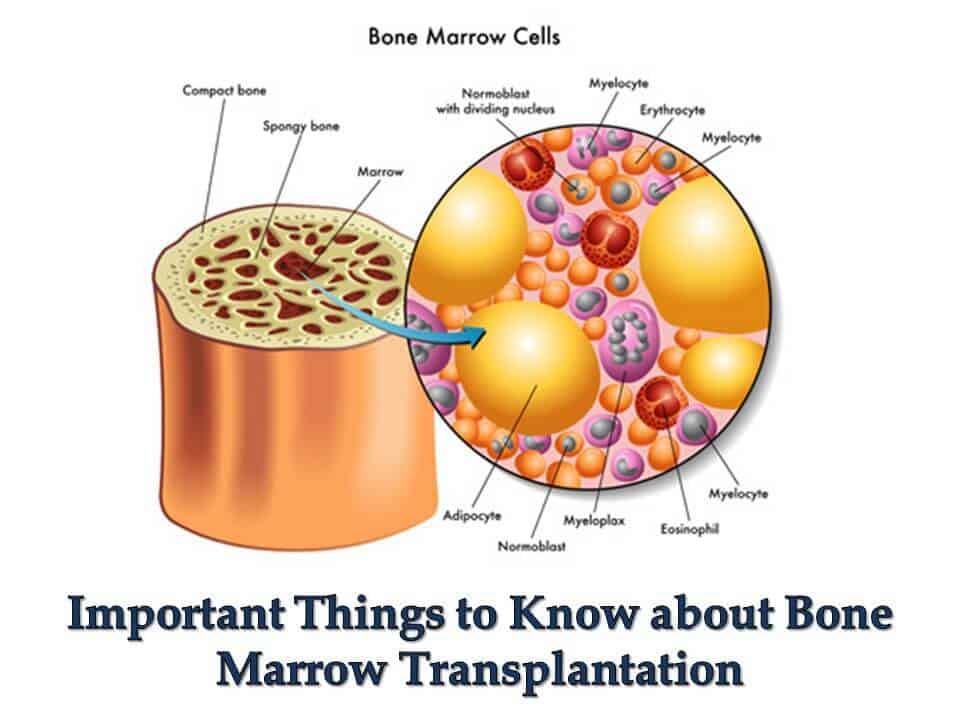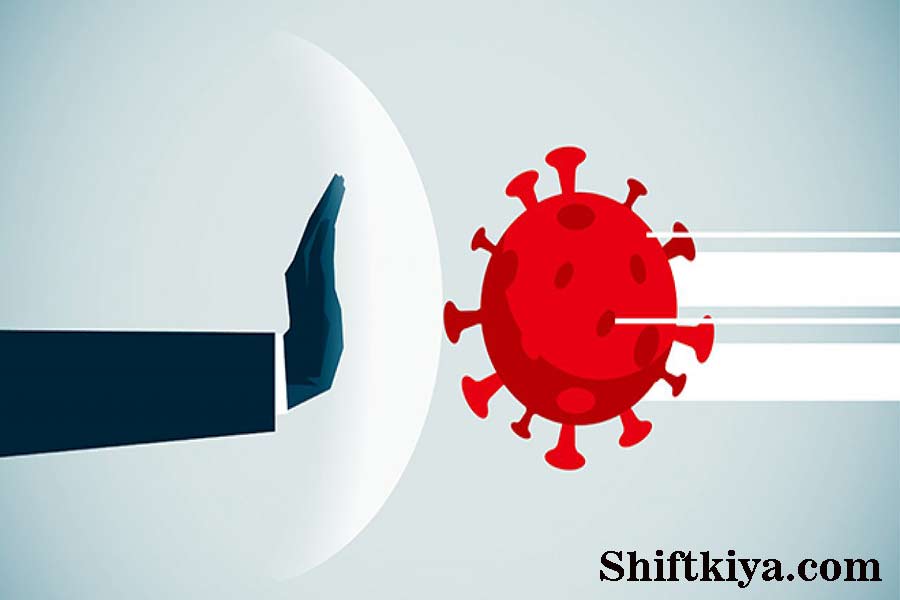Talking about a bone marrow transplant, it is a medical procedure that is performed to replace bone marrow that has been harmed or destroyed by ailments, infection, or even chemotherapy. The procedure includes transplanting blood stem cells that travel to the bone marrow wherein they generate new blood cells and endorse the growth of new marrow. You can find the best bone marrow transplant hospitals in India and have a word with the professionals for your case.

Bone marrow is a soft, fatty tissue within your bones. It forms the following parts of your blood:
- red blood cells that carry oxygen and nutrients through the body
- White blood cells that fight infection
- Platelets that are responsible for the creation of clots
Moreover, bone marrow also includes immature blood-forming stem cells that are known as hematopoietic stem cells or even HSCs. Most of the cells are readily differentiated and can just make copies of them. However, these stem cells are unspecialized that means these have the caliber to multiply through cell division and either stay stem cells or differentiate and mature into various different types of blood cells. The HSC found in the bone marrow is going to make fresh blood cells throughout the lifespan a person.
Also Read: Fitness Tips for a Perfect Body
If you go for this bone marrow transplant, it would replace your damaged stem cells with healthy, sound cells. It helps your body make sufficient white blood cells, platelets, or even red blood cells to evade any type of infections, bleeding disorders, or even anaemia. Talking about healthy stem cells, they can come from a donor, or they can even come from your own body. In such instances, stem cells can be reaped, or grown, before you begin to do chemotherapy or radiation treatment. These healthy cells are then accumulated and stored and used in the procedure of transplantation.
Table of Contents
Do you need bone marrow transplant?
Bone marrow transplants are carried out when the marrow of a person is not healthy enough to function in a proper manner. It could be due to chronic infections, ailment or cancer treatments. Some of the common reasons for a bone marrow transplant are like:
- aplastic anaemia that is a disorder wherein the marrow stops making fresh blood cells
- cancers that do affect the marrow, such as lymphoma, leukemia and multiple myeloma
- harmed bone marrow due to chemotherapy
- congenital neutropenia, which is a congenital disorder that ends up in recurring infections
- sickle cell anaemia that is an inherited blood disorder and causes misshapen red blood cells
- thalassemia that is an inherited blood disorder wherein the body generates an abnormal form of haemoglobin, an integral portion of red blood cells
Can there be complications with bone marrow transplantation?
A bone marrow transplant is believed to be a major medical procedure and enhances your risk of experiencing:
- a drop in your blood pressure
- severe headaches
- nausea
- Pain
- chills
- Shortness of breath
- fever
These mentioned symptoms are typically short-lived, but a bone marrow transplant can do cause complications. Your chances of getting these complications to rely on various kinds of factors such as:
- your overall health
- your age
- the kind of transplant you’ve received
- the ailment you are being treated for
The complications can be mild or can be even very serious, and these can include:
- Graft-versus-host disease (GVHD), It is a condition wherein the donor cells attack your body
- graft failure that emerges when transplanted cells don’t start producing new cells as planned
- bleeding in your brain, lungs, and other parts of the body
- cataracts that are characterized by clouding in the lens of your eye
- harm the vital organs
- early menopause
- Anaemia that takes place when the body doesn’t produce sufficient red blood cells
- Different kinds of infections
- diarrhoea, Nausea or vomiting
- Mucositis that is a condition that triggers inflammation and soreness in your mouth, throat, and even stomach
You should always talk to your doctor about the conditions you have. They would always help you in getting relief and tackling with these situations. They have experience and doing work in the same field. Nobody can guide you better than them.
The quick look at some of the types of transplants
There are two main kinds of bone marrow transplants. The kind used will depend on the reason you require a transplant.
Allogeneic Transplants
Allogeneic transplants include the use of cells from a donor. The donor has to be a close genetic match. Most of the times a compatible relative are the finest choice, but genetic matches can even be found from a donor registry.
Remember these transplants are necessary if you possess a condition that has hampered your bone marrow cells. However, these have a higher risk of specific kinds of complications like GVHD. You would also probably require to be put on medications to overpower your immune system so that your body does not attack the fresh cells. It can leave you vulnerable to ailment. The success of this transplant depends totally on how closely the donor cells match your own. It is something that the doctor would check and let you know about. The experts analyse everything before they start with transplant. They make sure everything matches only then they begin.
Autologous transplants
These involve the usage of a person’s own stem cells. They characteristically include harvesting your cells before starting a damaging therapy to cells such as chemotherapy or even radiation. After the treatment is done, your own cells get returned to your body. This kind of transplant is not always available. It can just be used if you have a healthy bone marrow. However, it diminishes the danger of some serious complications like GVHD.
The bottom line is that you can reach out to the best doctors, experts and medical professionals. There are exclusive hospitals that are dedicated to these transplants. Once you talk to them, you would get the picture clear.

 ENT Specialists and their treatment
ENT Specialists and their treatment A Simple Guide on the Harmful Effects of Cosmetics Products
A Simple Guide on the Harmful Effects of Cosmetics Products Let us Know About Olecranon Fracture
Let us Know About Olecranon Fracture How to Choose The Best Hair Color for Fair Skin 2019
How to Choose The Best Hair Color for Fair Skin 2019 How to Calculate the MPH Traversed on the Treadmill?
How to Calculate the MPH Traversed on the Treadmill? Why Should You Use Organic Shampoo?
Why Should You Use Organic Shampoo? What Will Be Your Best Eyeliner For Oily Lids?
What Will Be Your Best Eyeliner For Oily Lids? Expert Tips for Applying Tinted Moisturizer
Expert Tips for Applying Tinted Moisturizer Learning Disabilities and Symptoms
Learning Disabilities and Symptoms What to Eat for High Performance?
What to Eat for High Performance? How Long Does Strep Throat Last Without Antibiotics
How Long Does Strep Throat Last Without Antibiotics Brown Menstrual Blood and Why it happens?
Brown Menstrual Blood and Why it happens? How To Get Rid Of Blemishes: Top 12 Best Home Remedies
How To Get Rid Of Blemishes: Top 12 Best Home Remedies Doctor Bobbleheads And How It Is Helping The Fight Against COVID-19
Doctor Bobbleheads And How It Is Helping The Fight Against COVID-19